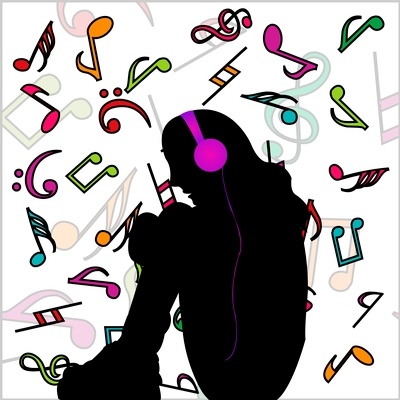Music has officially entered the workforce. With the advent of open working environments and the rise of computer desk jockeys, it’s rare to find someone who doesn’t have a pair of headphones or earbuds at their desk.
At some offices, seeing co-workers pounding their keyboards with headphones on is status quo. At other companies, this might be considered suspect, as in: Are they really working?
Which brings us to our question: Does listening to music (or whatever is blaring out of your headphones) really make you more productive?
A variety of studies have proven that music helps make repetitive tasks easier. And while the beat might help you get into what you’re doing there’s more to it. Music can also improve your mood, and being happy increases efficiency and productivity.
According to this New York Times article, music can release dopamine in the same way that eating something delicious or looking at a beautiful view does.
When you listen to music on headphones it blocks out distracting noises—an increasing necessity as teams move to open environments with sideline conversations, sales calls, and ad hoc meetings taking place all around you. How does a person concentrate in the middle of such a racket? Headphones can also block out interruptions. Co-workers aren’t as likely to approach you if they see you tuning out and leaning into your screen with intention.

More modern day workers have their attention stretched to the max. A wandering mind isn’t known to be the most productive one—and music can bring you back into the present. This is good news to the task in front of you that is waiting patiently to be attended to.
Music is personal, and people are programmed differently—so what works for one person might not work well for another. For example, I absolutely cannot listen to music, especially if there are lyrics, when I write or edit (although I can for creative writing). But I know writers who will listen to movie soundtracks to write everything from white papers to blogs.
Music with lyrics is considered the most distracting—especially if you’re doing language-oriented tasks. If you’re trying to wrangle words while disconnected words fill your head, it can feel a bit like patting your head and rubbing your belly.
Music with lyrics works best with non-language oriented tasks, like software developing and designing. Which might explain why A) most of your dev team has music streaming into their ears while they write brilliant code, and B) your designer can listen to podcasts and lay down beautiful website redesigns.
However you slice it, listening to music demands your attention at some level. Even if it’s the most low-volume background-y music ever. One could argue that’s a plus if the music pulls you away from the surrounding distractions. Maybe the music distraction could be the better options. But again, one person might be more sensitive to surround sounds than others. For example, you know how, when you’re out at a restaurant or a bar, there’s always that person that sits up and says, “I love this song!” while the rest of the table can hardly hear a thing? That’s the person that might struggle to try to work and listen to music at the same time.
One study crowned ambient music at a moderate volume (no lyrics) as the best type of music to work to. And people are most productive when working to background music that’s in a major mode (major-chord scales). Another rule of thumb says: Listen to your favorite playlists instead of something new or a radio station. Work should be the focus; and if there’s a new song with some surprising riffs or lyrics, you don’t want to get sidelined (because we all know where that can lead.)
The trouble with listening to music is that it interferes with learning. So, even with scientifically-approved low-volume rhythms, you’re still distracting yourself from absorbing new information or being able to recall a complex task. But you probably knew that, and most of us probably know to take the headphones off.
If you’re having a creative block, you’re in a funk, unmotivated, lost your luster—music can help! Since music is born from creative inspiration, coming in contact with it might inspire the creative spark you need to get in a new frame of thinking and get your mojo rising.
With all the new mobile devices, music services, and streams, music in the workplace is here to stay. Just know how to use it effectively, appropriately and inspirationally—and be ready to share your playlists!
For more insight on how different types of music affect productivity, check out this Fast Company article.







